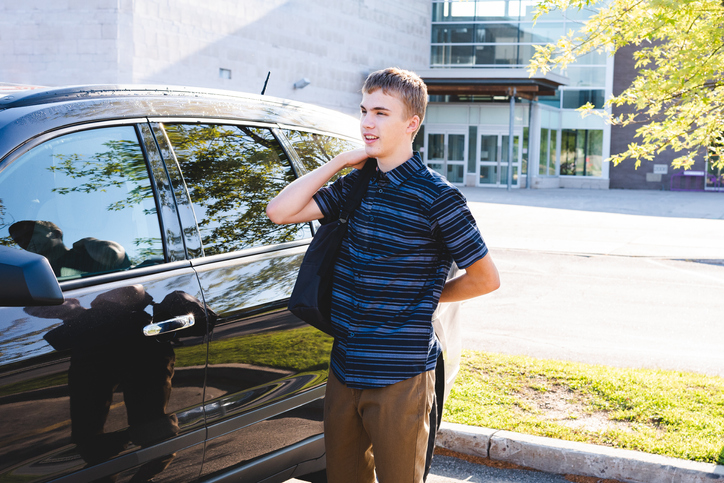
Every parent probably understands or anticipates how scary it can be to send their teen out on the road! As summer approaches, many teen drivers will out driving and enjoying their school break. Unfortunately, summer is one of the deadliest times of the year for teen drivers.
According to the Insurance Institute for Highway Safety, teen drivers ages 16 to 19 are nearly three times more likely than drivers aged 20 and older to be in a fatal crash. The main reason for this tragic statistic is that teens lack experience handling a car and understanding roadway conditions. According to Healthy Children, teens especially struggle with sizing up and reacting appropriately to hazardous circumstances such as merging onto a highway, making a left-hand turn at a crowded intersection, or driving in poor weather
Let’s work together to increase roadway safety for everyone this summer! Keep reading for expert tips on helping your kids become more responsible drivers.
#1: Give Your Teen More Practice
Give your teen extra practice behind the wheel. School drivers-ed programs and private driving instruction typically provide a total of six hours on-the-road training when the experience actually needed to become reasonably proficient is closer to fifty hours (two hours a week spread over six months). “Practice makes better,” so provide as much driver education as possible. When teaching your teen to drive, start with basic skills, then introduce other scenarios such as driving at night, on country roads, in bumper-to-bumper traffic, on freeways, at dusk, in rainy weather and so on. Make it a habit of handing your teen the car keys when you’re running errands together. When you drive with your teen, remember to give instructions in calm tones and encourage them to talk about when they are learning and observing while driving.
#2: Encourage Your Teen to Wait a Few Years Before Getting Their License
American Academy of Pediatrics recommends that teens not receive an unrestricted license until age eighteen or until they have been driving under adult supervision for at least two years.
#3: Discourage or Restrict Your Teen from Driving Other Teen Passengers
Research has shown that accidents are more common when teen drivers carry teen passengers. Teens are more likely succumb to peer pressure, and other teen passengers often encourage unsafe driving behaviors.
#4: Safety Check Your Teen’s Car
While you might want teens to save up and buy their own car, “beaters” may not be as safe as newer models with modern safety features. Ideally, adolescents should be driving midsize or full-size cars equipped with air bags, says Healthy Children. Larger cars offer more crash protection. Avoid high-performance vehicles that may tempt teens to speed. SUVs are generally less stable and more likely to roll over. Having a heavy-duty roll bar installed will greatly increase safety.
#5: Set a Good Example
You are a powerful role model. For everyone’ sake, avoid speeding, weaving in and out of traffic, drinking and driving, texting at the wheel, fiddling with your smartphone, and road rage!
If you need help in a legal case regarding a car accident caused by someone else’s negligence, or if you are being accused of causing someone else injury in a car accident, call 318-284-8551) or contact us online to get started.
